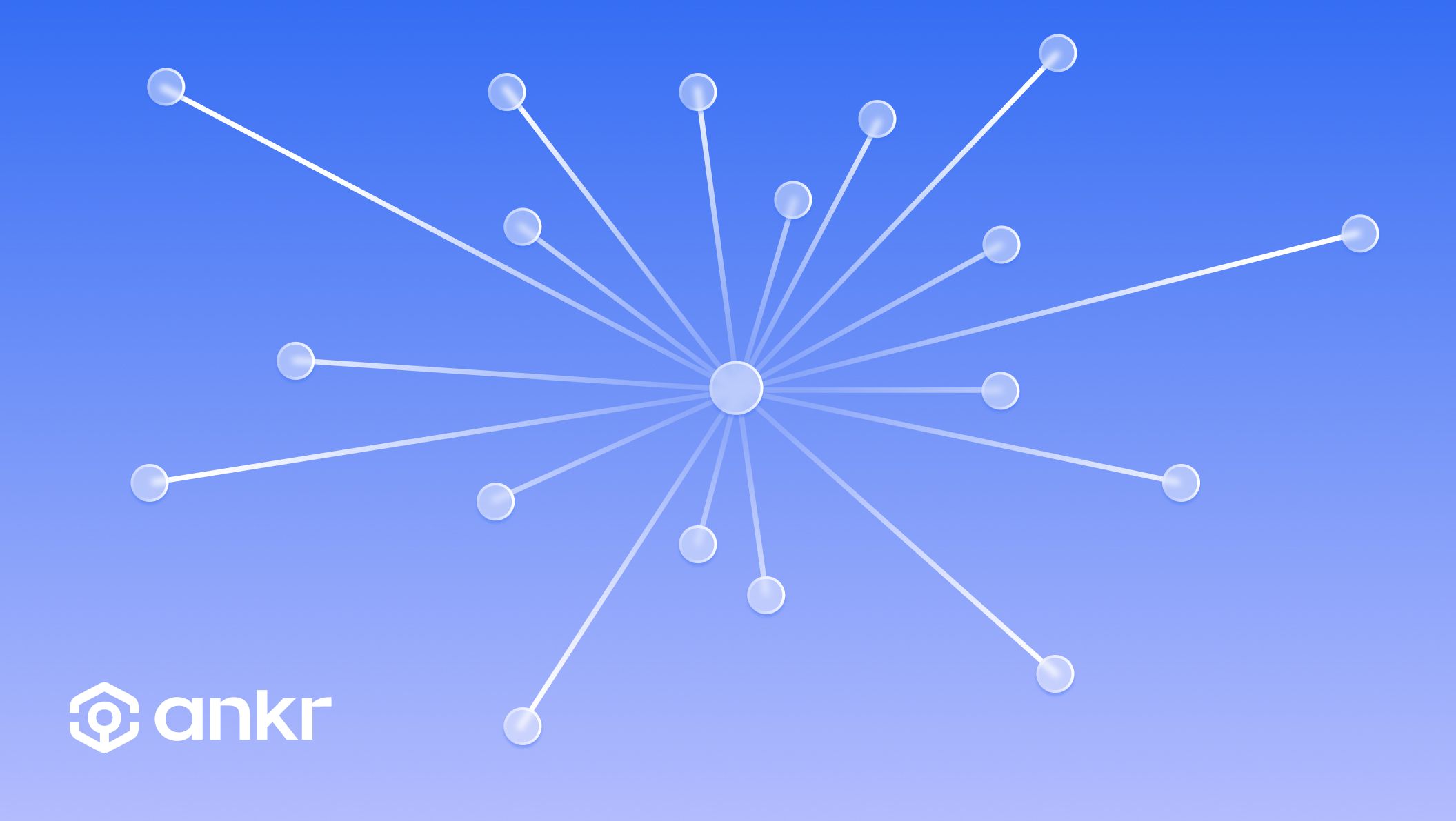2023: The Year of DeFi & Web3-Native Infrastructure

Kevin Dwyer
December 22, 2022
5 min read

TL;DR
Web3 developers have three choices when it comes to accessing the node infrastructure (blockchain connections) necessary for building and operating dApps. They can run their own nodes, pay for centralized providers like Infura, Alchemy, and AWS, or they can use a Web3-native infrastructure provider like Ankr. Ultimately, Web3-native infrastructure is often the best option for the following reasons:
- Running your own nodes is labor, time, and capital intensive with an additional set of technical skills needed.
- Centralized infrastructure is antithetical to Web3 and provides vulnerabilities for censorship, failure, and manipulation.
- Decentralized infrastructure providers like Ankr offer a solution aligned with the original intent of blockchain tech. Developers reach a vast, increasingly decentralized network of nodes with lower latency, more reliability, and high-performance standards while incentivizing node operators, users, and communities.
Introduction
Blockchain developers can build new Web3 apps faster than ever, thanks to the growing availability of infrastructure that allows them to communicate with blockchains without needing to set up their own nodes. This is known as the RPC (Remote Procedure Call) layer, which could be classified as a type of API (Application Programming Interface) that interacts with a network of nodes. These tools are vital for developers in building the dApps and open-source software that power Web3 experiences.
Setting up your own node infra can be very complicated and expensive. That’s why blockchain developers and projects seek RPC providers like Ankr to grant them hands-free access to interface with blockchains. These services allow them to make request calls to blockchains and read and write data to blockchains via the RPC extremely easily. In short, the RPC providers take the technical infra requirements out of the picture so developers can focus on creating dApps.
Why Use Web3-Native Infrastructure for Connecting To Blockchains?
There are two options for RPC providers – centralized companies providing a purely transactional subscription-based service, or Web3-native providers such as Pokt or Ankr that have a little more stake in the game (literally). The difference lies largely in dedication to the Web3 community. Ankr provides:
- Open-source tools
- Public goods
- Engineering support
- In-depth partnerships with foundations
Put simply, Ankr offers solutions that are created by web3 developers, for web3 developers because we are committed to growing the industry as a whole according to its most important principle – decentralization.
The Tech Is Customized for Blockchain
Most Web3 infrastructure providers use AWS data centers exclusively to house their nodes. Web2 cloud and database technology often falls short when attempting to deliver quality blockchain RPC/API services. The requirements of decentralized systems are much better served by infrastructure that has been customized and built specifically to serve unique demands. Using AWS also limits the global distribution of nodes and leads to higher latencies.
On the other hand, Ankr has spent years building our server/node infrastructure from the ground up, customizing it specifically for the demands of Web3 for better performance:
Other providers
- Provide a cloud-based service using AWS
- Constrained to AWS data center locations
- Complexities of Web3 tech bog down servers with traditional data validity requirements
Ankr
- Serves requests from a high-performance blend of bare-metal and cloud servers globally
- In more global data centers in more locations than any provider
- Runs nodes on custom servers optimized for blockchain & our tailor-made software
Avoid a Web2 Model for Web3 Systems
The internet, as we’ve known it for some time, relies largely on massive service providers to offer the computing infrastructure to run the web and cloud-based operations housed in huge data centers. In order for the internet to work, we need to pay these goliaths their dues. But do we want Web3 to operate the same way?
We all want Web3 to be as accessible as possible, so we want fewer paywalls and barriers to entry when it comes to interfacing with node infrastructure. Centralized providers don’t price their services for the communities — they do it to secure as much profit as they can. Alternatively, with Ankr's pay-as-you-go plans, builders only pay for what they use with affordable developer-first pricing.
Enhance Privacy & Autonomy
Purely centralized providers have more risk of directly or indirectly barring users from dApps that use their infrastructure based on location, government sanctions, or other factors, as we’ve seen in the past year. Having Ankr as a more decentralized provider means less exposure to these risks while collecting less information about your usage history. Use our RPC endpoints to give your wallet or dApp a connection to blockchains that is more private and secure:
- Ankr stores no PII or have a method to correlate wallet transactions to IP addresses
- Ankr never uses our RPC to front-run transactions (MEV exploitation on your transactions)
- We continue to decentralize the RPC as much as possible while preserving quality service
Use our endpoints to customize your MetaMask RPC: See step-by-step instructions
Eliminate Single Points of Failure
Consider the following potential situation with a mainly centralized platform that relies on centralized infrastructure to interface with blockchains.
The Ripple Effect
- AWS experiences a widespread outage.
- A centralized provider with AWS-based nodes goes down.
- OpenSea's services are now disrupted or unavailable as they rely on the provider.
- Twitter's NFT functionality is unavailable since it relies on OpenSea's NFT API.
- NFTs are difficult to verify, resulting in a breakdown in the UX and usability of non-fungible assets.
Alternatively, what if OpenSea's platform relied on a more decentralized infrastructure? The above scenario would have a much more favorable outcome: one cluster of independent nodes goes down, Ankr's load balancer immediately transfers the traffic to other unaffected nodes in other regions, OpenSea's NFT services remain operational, and Twitter's NFT functionality remains fully functioning.
Final Thoughts
We have an opportunity to build a new layer of the web that provides autonomy, privacy, censorship-resistance, and self-governance without a need for companies over-capitalizing on its use. Decentralized infrastructure is the missing puzzle piece that allows us to build, transact, communicate, and earn rewards on the future web independently and scalably.
Join the Conversation On Ankr’s Channels
Twitter | Telegram Announcements | Telegram English Chat | Help Desk | Discord | YouTube | LinkedIn | Instagram | Ankr Staking




